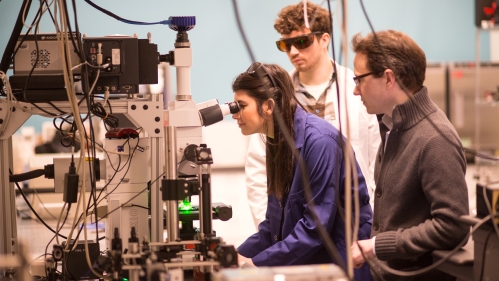Graduate Research Across Disciplines
At Rutgers University–Camden, graduate students pursue master‘s and doctoral programs in a challenging, academic environment cultivated by outstanding faculty scholars who encourage investigation and exploration. Through our libraries, centers, institutes, and facilities, students have access to the superior academic and research resources you would expect from a major research university such as Rutgers.
Here’s a sample of where the research pursuits of recent Rutgers–Camden graduate students have led.
- A graduate of the Ph.D. in childhood studies program, Diane Marano’s dissertation became the basis of her new book Juvenile Offenders and Guns: Voices Behind Gun Violence.
- Elisa Miyake, who researched energy drink consumption as a M.S. in psychology student, published her research in the scholarly journal Addictive Behaviors.
- As an M.S. in biology candidate, Ryan Pachucki studied how circadian rhythms work within populations of fungus that grow globally.
- Matt Niepielko, Rutgers–Camden's first Ph.D. graduate in computational and integrative biology, was named a recipient of the DeLill Nasser Award for Professional Development in Genetics from the Genetics Society of America to pursue postdoctoral research.
- Ten students in the Ph.D. in public affairs program presented their unique research at the Urban Affairs Association conference.
